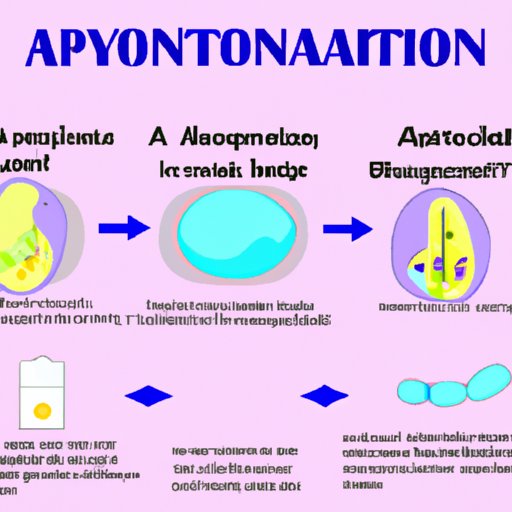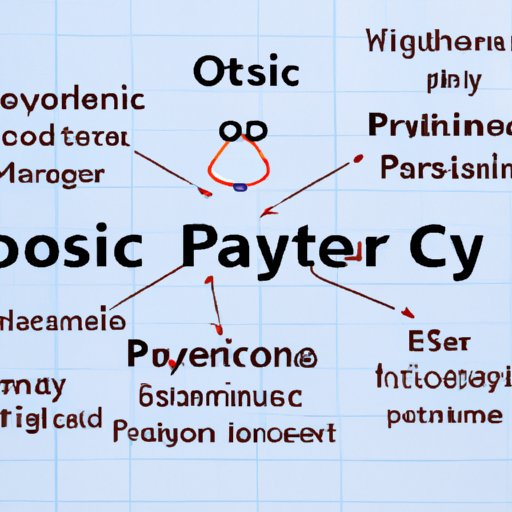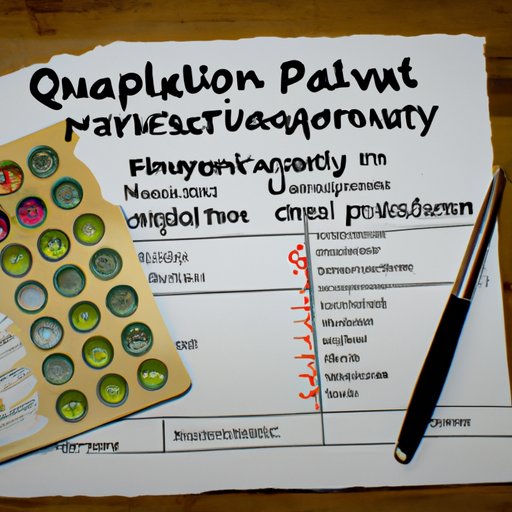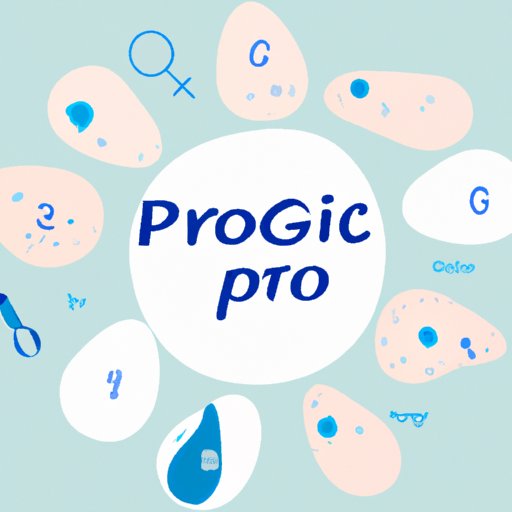Introduction
Ovulation is a crucial process that occurs in a woman’s reproductive cycle. It is the release of a mature egg from one of the ovaries. An egg that is released during ovulation can then be fertilized by sperm and result in pregnancy. But what happens if you are not ovulating? Can you still get pregnant?
Can You Get Pregnant If You Are Not Ovulating?
The answer to this question depends on the underlying cause of your anovulation. Anovulation is the absence of ovulation and can be caused by several conditions, such as polycystic ovarian syndrome (PCOS). In some cases, it may be possible to conceive without ovulating, but it is important to understand the role of ovulation in conception and take steps to identify and treat any underlying medical condition that is causing the anovulation.

How to Identify and Treat Anovulation
If you suspect that you are not ovulating, your doctor may order tests to confirm the diagnosis. These tests may include blood tests to measure hormone levels, ultrasound imaging to check for follicles, or an endometrial biopsy to assess the lining of the uterus. Depending on the results of these tests, your doctor may recommend medications or lifestyle changes to help you ovulate.
Understanding the Role of Ovulation in Conception
In order for conception to occur, an egg must be released from one of the ovaries and be available for fertilization by sperm. Without ovulation, there is no egg available for fertilization and therefore no chance of pregnancy. This means that even if sperm is present, without ovulation there is no way for it to reach and fertilize an egg.
The Impact of PCOS on Fertility and Ovulation
Polycystic ovarian syndrome (PCOS) is a common cause of anovulation. PCOS is a hormonal disorder that affects up to 10 percent of women of childbearing age. Women with PCOS often have irregular menstrual cycles, higher levels of male hormones, and multiple small cysts on their ovaries.

Causes of Polycystic Ovarian Syndrome
The exact cause of PCOS is unknown, but researchers believe it is related to a combination of genetic, environmental, and lifestyle factors. Some of the possible causes of PCOS include insulin resistance, obesity, and inflammation.
Symptoms of PCOS
Common symptoms of PCOS include irregular periods, excess hair growth, acne, weight gain, and infertility. Women with PCOS are also at increased risk of developing type 2 diabetes, high cholesterol, and other metabolic disorders.
Treatment Options
Treatment for PCOS focuses on managing the symptoms and restoring normal ovulation. Depending on the severity of the condition, treatment may include lifestyle changes such as diet and exercise, medication such as birth control or metformin, and surgery to remove ovarian cysts.
What Are the Chances of Getting Pregnant Without Ovulation?
For women who are not ovulating, the chances of conceiving are lower than for those who are ovulating. However, there are several treatments that can help increase the chances of conception, such as fertility drugs, intrauterine insemination (IUI), and in vitro fertilization (IVF). In addition, making lifestyle changes such as eating a healthy diet, exercising regularly, and reducing stress can also help improve overall fertility.
Assessing Your Chances
It is important to speak to your doctor about your individual situation before trying to conceive. Your doctor can help you assess your chances of conceiving and provide guidance on the best treatment options for you. They can also refer you to a fertility specialist if necessary.

Possible Solutions to Increase Your Chances
If you are not ovulating and would like to become pregnant, there are several options available to increase your chances. These include taking fertility medications, undergoing IUI or IVF, or making lifestyle changes. In addition, it is important to talk to your doctor about any underlying medical conditions that may be contributing to your anovulation.
Is It Possible to Have a Baby Without Ovulation?
In some cases, it is possible to become pregnant without ovulating. This is usually done through assisted reproductive technologies such as IVF, where eggs are harvested from the ovaries and fertilized outside the body. However, it is important to remember that without ovulation, the chances of becoming pregnant are much lower.
Understanding the Process
When undergoing IVF, a woman will take hormones to stimulate the ovaries and produce multiple eggs. The eggs are then removed from the ovaries and fertilized with sperm in a laboratory. Once the eggs are fertilized, they are implanted into the uterus. This process bypasses the need for ovulation, as the eggs are already fertilized when they are implanted.
Considerations for Women Who Are Not Ovulating
If you are not ovulating and would like to become pregnant, it is important to consult with your doctor to discuss your options. Your doctor can help you determine the best course of action for you and provide guidance on the risks and benefits of different treatments. Additionally, it is important to make sure any underlying medical conditions are properly treated before attempting to conceive.
Conclusion
In conclusion, while it is possible to become pregnant without ovulating, the chances are much lower than for those who do ovulate. It is important to understand the role of ovulation in conception and take steps to identify and treat any underlying medical condition that is causing the anovulation. Additionally, speaking to your doctor about your individual situation and exploring treatment options such as fertility drugs, IUI, or IVF can help to increase your chances of becoming pregnant.

Summary of the Possibility of Pregnancy Without Ovulation
Although it is possible to become pregnant without ovulating, the chances are much lower than for those who do ovulate. It is important to understand the role of ovulation in conception and consider treatments such as fertility drugs, IUI, or IVF to increase the chances of pregnancy. Additionally, it is important to speak to your doctor about any underlying medical conditions that may be contributing to your anovulation.
Recommendations for Further Research
Further research is needed to better understand the causes of anovulation and how to effectively treat them. Additionally, more studies are needed to explore the effectiveness of different treatments for anovulation and to determine the best course of action for women who are not ovulating and would like to become pregnant.
(Note: Is this article not meeting your expectations? Do you have knowledge or insights to share? Unlock new opportunities and expand your reach by joining our authors team. Click Registration to join us and share your expertise with our readers.)
